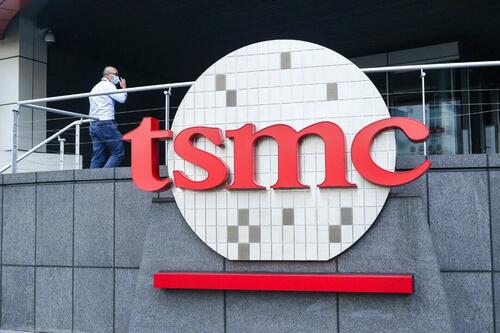Authored by Aldgra Fredly via The Epoch Times (emphasis ours),
Taiwanese National Science and Technology Council Minister Wu Cheng-wen said that Taiwan and the United States have reached a “consensus” to keep tariffs off Taipei’s semiconductor industry.

In a Financial Times interview published on Nov. 20, Wu said that Taiwan will support the United States in building its chip industry, and in return, the United States will offer tariff relief for the island’s semiconductor sector.
“Of course, there’s the recipes of how to make the chips, but it’s also about the science park management, attracting companies, integrating academic research with industry,” Wu told the news outlet. “No other country has done what we have done.”
Wu did not provide details about the consensus that was reached.
Taiwanese Economic Minister Kung Ming-hsin told reporters on Nov. 22 that Taiwan has not finalized any trade agreement with the United States yet, but he noted that Taiwan’s negotiators are “working hard on it,” local media reported.
Taiwan hopes to secure a deal with the Trump administration that would ease the current 20 percent U.S. tariffs on its exports. U.S. President Donald Trump in August threatened tariffs of up to 300 percent on chip imports.
Wu said that Washington is unlikely to impose such high tariffs on Taiwan’s semiconductors because the administration understands that “punishing Taiwan is not in their interests.”
Taiwan’s dominant role in global chip manufacturing, led by chipmaker Taiwan Semiconductor Manufacturing Co., has been labeled as a deterrent against the Chinese regime’s military aggression, a concept known as the “silicon shield.”
Wu said in the interview that Taiwan was looking to create a “second silicon shield” in areas such as drones, robotics, and medical technology to diversify its strategic assets beyond chips.
However, Wu noted that Taiwan intends to keep its cutting-edge research and development within the island, citing potential security concerns if the sector were relocated overseas.
“If we move our [research and development] overseas, it’ll be dangerous for us,” he said. “New weapons and defense systems rely on advanced chips.”
The White House has not publicly commented on Wu’s remarks.
U.S. Commerce Secretary Howard Lutnick told NewsNation on Sept. 27 that the two sides have discussed producing equal shares of the semiconductor chips required to meet U.S. demand.
Washington wants Taiwan to move half of its semiconductor production to the United States, Lutnick said. Ultimately, the goal is for the United States to capture at least 40 percent of the semiconductor market, which would require $500 billion in domestic investment, he said.
“That has been the conversation we had with Taiwan, [telling them] that ‘you have to understand it’s vital for you to have us produce 50 percent,’” he said.
In response to Lutnick’s comments, the Office of Trade Negotiations of Taiwan’s Executive Yuan, the highest administrative organ in Taiwan, said that it would exercise prudence in trade negotiations with the United States, according to Taiwanese media outlets.
Frank Fang contributed to this report.
Loading recommendations...